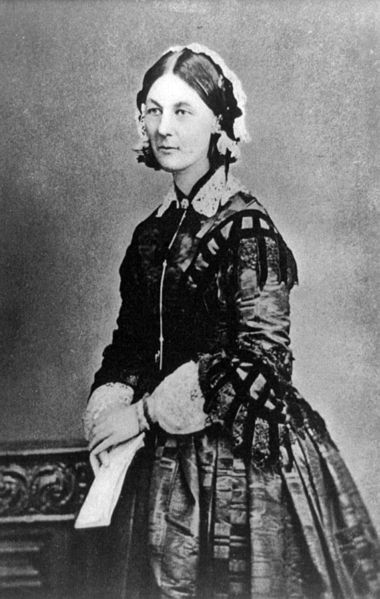
Florence Nightingale: A Life and Legacy
On Friday the 3rd of April, NHS Nightingale Hospital opened its doors. The hospital’s historic opening is in response to the Covid-19 pandemic and is the first ‘emergency’ hospital of its kind to do so in the UK. Named after Florence Nightingale, ‘The Lady with the Lamp’, NHS Nightingale hopes to represent all that she herself embodied: care, selflessness, and hope. The 12th of May 2020 marks two-hundred years since Nightingale’s birth. But as we have seen this week, her life and legacy live on, even in the most uncertain of times.
However, as a caregiver, educator, and medical pioneer, Florence Nightingale was much more than ‘The Lady with the Lamp.’ Born to British parents in Italy, Nightingale shunned convention from her teenage years. She insisted that she had received a ‘calling from God’ to help the sick and poor. Instead of following in her mother’s footsteps by marrying and having children young, she pursued a medical career. Nightingale knew her calling was specifically to nursing, and it turned out to be one that would change the face of the profession forever.
Despite the resistance of her parents, Nightingale was able to train in Germany at Pastor Theodore Fliedner’s hospital and school for Lutheran Deaconesses. This training soon paid off, as at the age of just thirty-three she became superintendent and manager of The Institute for the Care of Sick Gentlewomen.
Florence Nightingale and The Crimean War
It was to be the devastation of the Crimean War that associated Nightingale’s name with the transformation of the nursing sector. During this conflict, Nightingale, alongside another thirty-five female volunteers, was sent to the Selimiye barracks – then home to the British Army. Here, Nightingale observed the shockingly unsanitary conditions of the hospital, which she proposed was linked to the high mortality rate among injured soldiers.
Always one to take matters into her own hands, she wrote an appeal to The Times that forced the government to address the harmful conditions of the hospital. The government mobilised the famous architect Isambard Kingdom Brunel to design a prefabricated hospital, constructed out of wood – and so the Renkioi Hospital was born. Nightingale’s appeal had the desired effect: there was a huge drop in the mortality rate and a significant improvement in hygiene standards. It is thought that the death rate went down from 40% to 2%, in part due to her actions.
Modern Parallels
Whilst Nightingale’s actions took place over a hundred and fifty years ago, you can’t help but see the parallels between her circumstances and our current situation. Just as she recruited nursing volunteers to help save lives, so we’ve seen final-year medical students join the frontline in the battle against Covid-19, whilst thousands of retired medical professionals have also volunteered to return to the NHS. And NHS Nightingale, like the Renkioi Hospital, was built in response to a crisis. Formerly ExCel London, the exhibition space it has filled has had many different faces over time, from the home of Comic-Con to a university exam hall. Its latest aspect is its most sobering yet, but also its most needed. Even Nightingale’s emphasis on basic hygiene, such as handwashing, has made a haunting return during this global emergency.
Nightingale was more than a great educator and nursing practitioner – she was a carer in the truest sense of the word. Her alias as ‘The Lady with the Lamp’ emerged following a report in The Times. Late at night, with only the embers from her candle lighting her path, she would walk quietly up and down the hospital, checking on the sick men and tending to those who were in pain. Although some critics have claimed that Nightingale’s impact on the Crimean War was over-stated, her legacy still shines bright – and narratives like this explain why.
A Social Reformer
Florence Nightingale is also a celebrated social reformer and was responsible for highlighting famine in India. As the founder of modern nursing, she helped redefine the role and purpose of women in Victorian society. Her legacy has since taken on many forms and is permanently etched into British culture. The Florence Nightingale Medal is awarded every two years to nurses who excel in their field. In addition, Nightingale’s birthday on May the 12th sees the celebration of International Nurses Day. The eponym of NHS Nightingale is yet another testament to her enduring impact on healthcare.
As Britain faces its greatest challenge since World War II, Nightingale’s words on the momentous power of action can serve as a reminder to us all, that we each play our part in this battle:
‘Rather, ten times, die in the surf, heralding the way to a new world, than stand idly on the shore.’ – Florence Nightingale.
